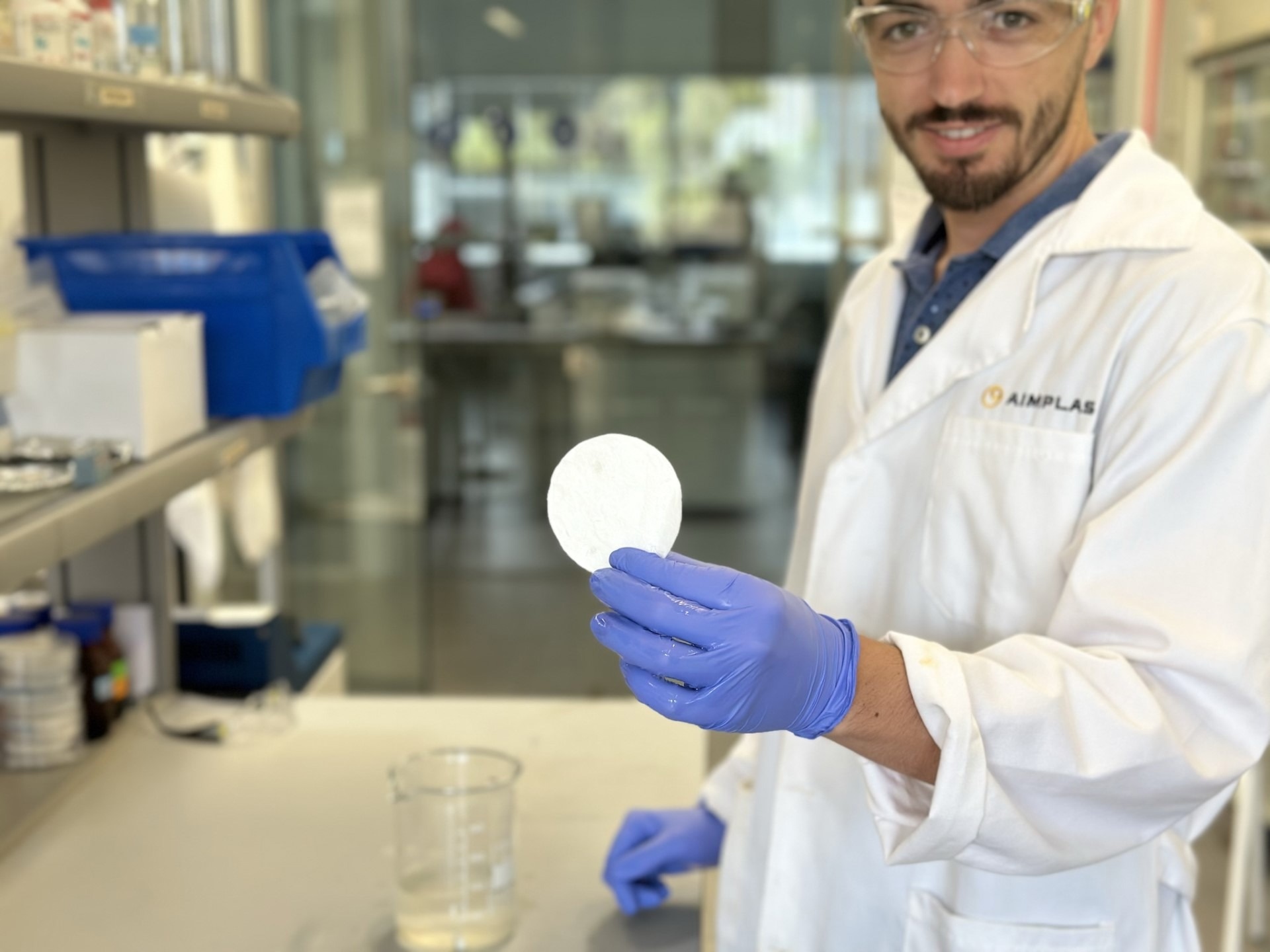AIMPLAS, the Plastics Technology Centre, forms part of the BioICEP project (Bio Innovation of a Circular Economy for Plastics), which started in February 2020 and is funded by the Horizon 2020 program. The goal of the project is to develop sustainable and environmentally friendly alternatives to traditional petroleum-based plastics.

Image Credit: AIMPLAS
The project used an innovative cascade process by applying and combining chemical and biological methods to turn fossil-based plastic waste into natural, biodegradable substitutes to be used in the packaging and pharma industries.
The role of AIMPLAS in the project involved the pretreatment of plastics using microwave-assisted thermochemical degradation. This new technology provided promising results by turning non-biodegradable plastic waste (such as low-density polyethylene) into easily biodegradable materials and achieving total degradation in less than 28 days. Another technique used was the depolymerization of polyamides to obtain the monomers of these polymers. Microorganisms are then able to degrade these monomers so they can be turned into products of interest such as bioplastics.
Likewise, AIMPLAS used reactive extrusion technologies that made changes to the structure of the polymeric chains to improve biodegradation of these plastics. AIMPLAS is also the coordinator in charge of dissemination and exploitation of results, as well as communication activities.
Reducing the Amount of Plastic in the Environment
BioICEP met the goal of developing processes to reduce the amount of plastic waste in the environment. With this in mind, the project was made up of partners from different countries and areas of knowledge who were able to address the challenge of developing alternative processes to improve recycling based on a multidisciplinary approach, which was essential for project success.
The solution proposed by the BioICEP project focused on the use of three technologies that enhance, accelerate and increase the degradation of plastics to levels far beyond what is currently possible. A triple-action depolymerization system broke down plastic waste through three consecutive processes. The first consisted of chemical disintegration processes, including a new microwave-based technology that reduces the molecular weight of base polymers to improve biodegradation. The second process was biocatalytic digestion with improved enzymes using different innovative techniques, including screening with fluorescent sensors and directed evolution. Finally, in the third process, microbial consortia developed from best-in-class single microbial strains were used in combination to produce the highly efficient degradation of mixed plastic waste streams. The products of this degradation process will be used for the synthesis of new polymers and bioproducts to enable a new plastic waste-based circular economy.